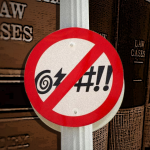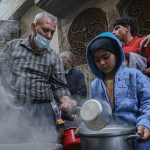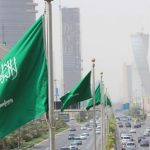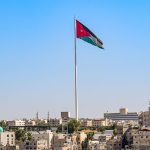Jordan’s regional clout has grown as a result of the recent calm in Jerusalem
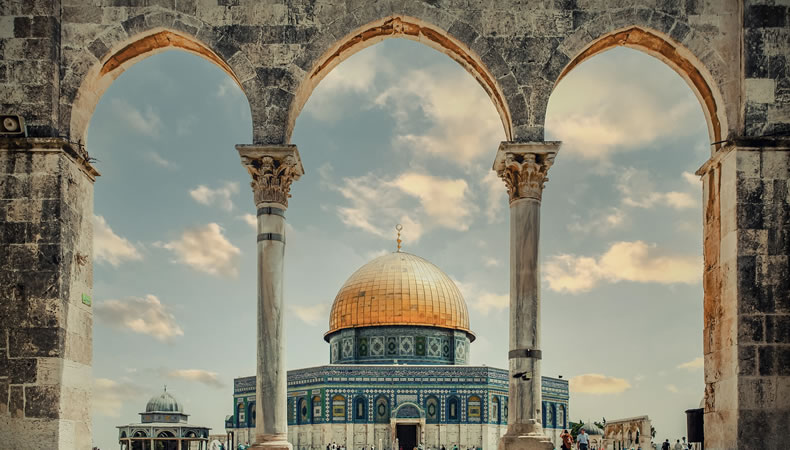

Jordan, a desert country of ten million people, has long owed its disproportionate importance to its location across the Jordan River from Israel and the dynamics of the Palestinian-Israeli conflict. Jordan’s Palestinian community accounts for a sizable share of the country’s population.
King Abdullah fought for an aggressive Arab attitude even before the new violence erupted at the start of Ramadan to avert the upheaval. He lobbied for and obtained more Arab recognition for Jordan’s custody of the shrine, which is one of Islam’s holiest sites. On the domestic arena, Jordanian officials depicted Al Aqsa as a vital part of the kingdom’s social fabric. The mosque was erected in the eighth century by Umayyad Ruler Hisham Bin Malik atop the disputed Temple Mount in East Jerusalem, which was under Jordanian authority until 1967.
Related Posts
On Monday, Jordanian Foreign Minister Ayman Al Safadi stated, “The entire 144,000 square meters of the Temple Mount is purely a Muslim site of worship.” To avoid a repetition of the bloodshed, he said long-term accords must be established by reopening Palestinian-Israeli dialogue. The negotiations were put on hold eight years ago as Israel’s right wing tightened its grip on the political arena.
The last time violence erupted at Al Aqsa was during Ramadan in May of last year, which resulted in an 11-day battle between Israel and Hamas, an Iranian-backed terrorist organization. The battle severely weakened President Mahmoud Abbas’s fragile Palestinian Authority, which is backed by Jordan, by presenting the PA as impotent to control events. After more than 200 Palestinians were murdered and 12 people in Israel were killed by rockets fired from Gaza, the US intervened to bring the war to a conclusion. In Israel, the battle sparked social unrest, with violence between Arab and Jewish populations.
After the conflict ended, Washington did not pursue a resumption of peace talks, contrary to Jordan’s wishes. President Joe Biden carried on the objectives of his predecessor, Donald Trump, of supporting normalization between Israel and Gulf and North African Arab governments. Israel, on the other hand, has backed down in recent days. Morocco and the United Arab Emirates, in coordination with Jordan, summoned Israeli envoys to denounce Israeli assaults on Palestinians at the site. In 2020, the two nations normalized their relations with Israel.
After hundreds of people, mostly Palestinians, were injured at the mosque this month, Israel restricted Jewish access. Other factors, in addition to outside pressure, may have impacted Israel’s decision. Its coalition government is shaky, and it faces additional foreign threats, such as the presence of Iran in Syria, which might grow if Russia commits more resources to its conflict in Ukraine. According to Jordanian scholar Hassan Al Momani, while Israel’s leadership must appease its right-wing supporters, it cannot afford to jeopardize the 1994 peace treaty with Jordan.
While the agreement does not directly reference Jordanian custody of Al Aqsa, its essence, he noted, is premised on Israel preserving the status quo that existed before to 1967. Jordan conquered East Jerusalem and the West Bank in the mid-nineteenth century until losing control of the territory to Israel in 1967 war. Jordan has international law on its side. Jews were primarily barred from approaching the summit of the monument due to Ottoman regulations dating back to the 16th century. The iconic Western Wall, the final remnants of the Jewish Second Temple, was demolished by Rome in the year 70 AD.
However, in a significant provocation in 2000, the late Israeli Prime Minister Ariel Sharon, who was then an opposition figure, inspected the site while escorted by hundreds of police, ushering in a new age of Israeli stubbornness. “Israel is an occupying power, and international law is on Jordan’s side,” said Prof Momani of Jordan University’s Department of International Studies. He claimed Jordan has no choice but to respond to the recent issue because “Al Aqsa is part of Jordan’s legitimacy.”
However, he believes Jordan’s objective of reopening Israeli-Palestinian discussions is unrealistic, given the West’s occupation of Ukraine and the necessity for Jordan to balance its interests with its Arab neighbors. “The Palestinian problem is existential to Jordan,” he continued, “but Jordan recognizes that it is not to other Arab countries, whose priority may be Iran.” Tensions between Palestinians and Israelis remain high. Israeli soldiers invaded a refugee camp in the occupied West Bank on Tuesday, killing a Palestinian man there.
Although Jordan remains a key moderate actor, a European diplomat expects little movement in the direction of long-term peace. “The Arab position has been a setback for Israel, and Jordan deserves credit for that. However, all eyes are on Ukraine, and the Palestinian Authority is far too weak a partner in any negotiations “he stated. “The worldwide strategy will be ‘repair it as you go.'””


